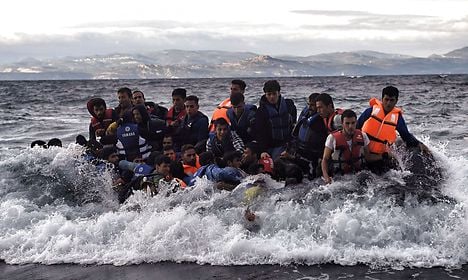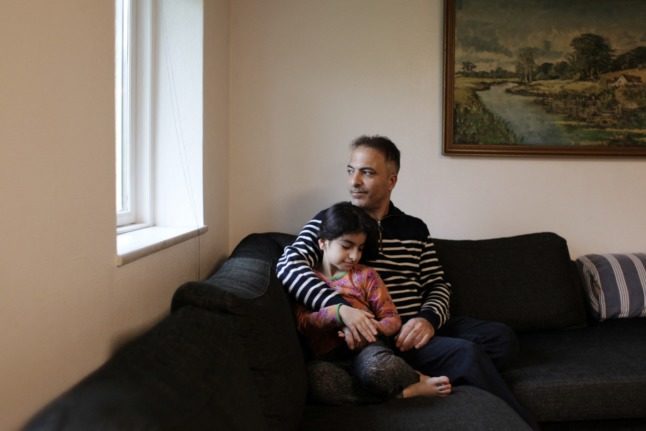I har samlet 25,5 mio. kr ind i dag! Det er den BEDSTE INDSAMLING NOGENSINDE. Det betyder hjælp til endnu flere. TAK pic.twitter.com/wRFvL1ngG0
— Røde Kors (@danskrodekors) October 4, 2015
AID
Danes donate record amount to Red Cross
With 8,000 more people volunteering to go door-to-door, the Red Cross collected a record amount of money to help the world's neediest people.
Published: 4 October 2015 21:10 CEST

The head of the Red Cross said he was certain that the attention on the current refugee crisis contributed to the record collection. Photo: Aris Messinis/Scanpix
If you were in Denmark on Sunday, odds are someone came knocking on your door to collect for the Red Cross. And in all likelihood, you threw a few coins in the collection bucket.
The Red Cross of Denmark said that a record 25.5 million kroner ($3.8 million) was collected in Sunday’s canvassing campaign, five million more than last year and more eight million more than in 2013.
“We are both proud and humbled that Danes have chosen to give so much money to our aid work. We had around 8,000 more collectors this year than last and all of them have made a huge difference for us,” Red Cross General Secretary Anders Ladekarl said in a press release.
Ladekarl said that the money would go toward ensuring that the Red Cross has available funds to help with future catastrophes as well as strengthening the group’s work to help the refugees of Syria’s long-raging civil war.
“I do not doubt that the strong focus there has been on the tragic conditions in and around Syria and the refugee influx that we are witnessing were major contributors to the many volunteers and fine result,” he said.
The Red Cross added that although refugees of the Syrian civil war may dominate the media picture, there is still urgent need for help in other places. The group will use seven million kroner of the money raised on Sunday in Syria and two million to aid refugees within Europe. Another four million will be distributed to the group’s work in Ukraine, Yemen, Myanmar and Liberia.
The record private contributions to the Red Cross came just days after the Venstre government proposed drastically cutting funds to aid organizations in next year’s budget. Ladekarl slammed those cuts as a “bloodbath” and accused the government of being “all talk” when it repeatedly said that it would rather help more people abroad than accept refugees into Denmark.
Just two weeks before Danes coughed up 25 million kroner to the Red Cross, they donated 86 million kroner to Syria via a joint fundraiser aired on the nation’s two dominant broadcasters.
Url copied to clipboard!


 Please whitelist us to continue reading.
Please whitelist us to continue reading.